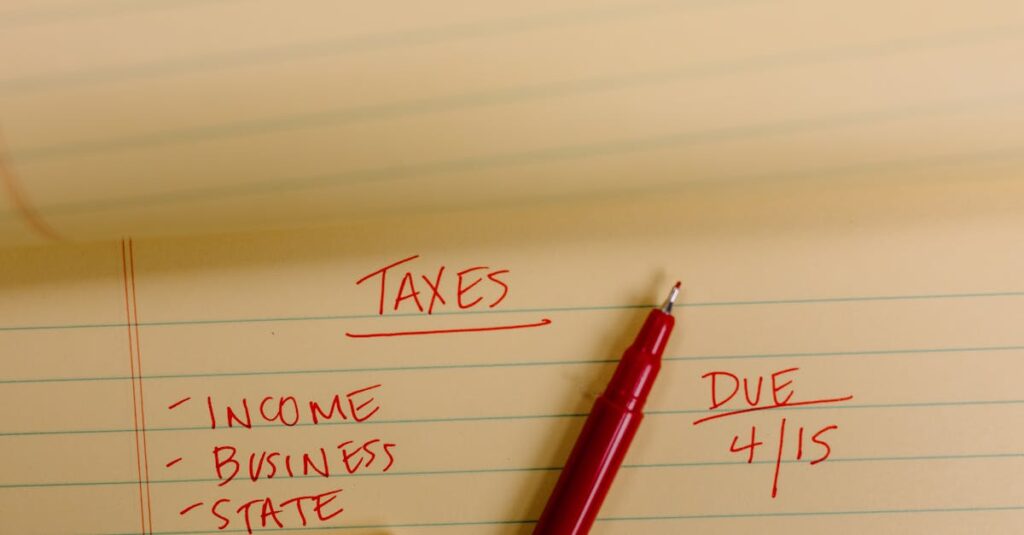As a resident of Washington state, I’ve noticed how sales tax can significantly impact our daily purchases. Washington’s tax system is unique since we don’t have a state income tax, making sales tax an essential source of revenue for our state and local governments.
I’ll break down Washington’s sales tax structure, which consists of both state and local components. The base state sales tax rate is 6.5%, but that’s not the whole story. When you combine state and local rates, the total amount you’ll pay at checkout varies depending on your location within Washington – and it can be quite substantial in some areas.
What is the Sales Tax in Washington State
- Washington’s base state sales tax rate is 6.5%, with total rates varying by location when combined with local taxes – reaching up to 10.3% in some areas
- Essential items like groceries, prescription medications, and medical supplies are exempt from Washington state sales tax
- Combined sales tax rates include county (0.5-2.5%), city (up to 1%), and special district taxes for transit and public facilities
- Businesses must register with the Department of Revenue, obtain a UBI number, and file returns monthly, quarterly, or annually based on revenue
- Tax rates significantly impact consumer behavior, with many residents crossing borders for large purchases or utilizing tax-free online marketplaces
Understanding Washington State Sales Tax
Washington’s sales tax structure combines state and local rates to form the total amount paid on taxable purchases. The system operates through a layered approach where both state and local jurisdictions collect their portions simultaneously at the point of sale.
Current State Sales Tax Rate
The base Washington state sales tax rate is 6.5% on retail sales. This rate applies uniformly across all jurisdictions in the state, from Seattle to Spokane. The state portion remains constant regardless of the city or county where the purchase occurs.
| Tax Component | Rate |
|---|---|
| State Base Rate | 6.5% |
| Implementation Year | 1935 |
| Last Modified | 1983 |
- County rates range from 0.5% to 2.5%
- City rates extend up to 1% in most municipalities
- Transit district add-ons contribute 0.1% to 0.9%
- Special purpose districts apply targeted rates of 0.1% to 0.3%
| Location Example | Combined Rate |
|---|---|
| Seattle | 10.1% |
| Tacoma | 10.3% |
| Spokane | 8.9% |
| Vancouver | 8.5% |
How Washington Sales Tax is Calculated
Washington’s sales tax calculation combines state base rate, local rates and special district taxes into a single percentage applied at checkout. Here’s how the different components work together:
Combined State and Local Rates
The calculation starts with Washington’s 6.5% base rate then adds applicable local taxes based on location. Local rates include:
- County rates: 0.5% to 2.5%
- City rates: Up to 1.0%
- Regional transit authority: 0.1% to 0.9%
For example, in Seattle:
| Tax Component | Rate |
|---|---|
| State Base | 6.5% |
| King County | 2.2% |
| City of Seattle | 0.85% |
| Sound Transit | 0.55% |
| Total | 10.1% |
Special District Taxes
Special district taxes apply additional targeted rates for specific purposes:
- Public facilities districts: 0.1% to 0.2%
- Transportation benefit districts: 0.2%
- Public safety districts: 0.1% to 0.3%
- Cultural access programs: 0.1%
These special district taxes attach only to transactions within their designated boundaries. The total tax rate depends on which special districts have authority in the purchase location.
Sales Tax Exemptions in Washington
Washington state offers specific sales tax exemptions on essential items and during designated periods to provide tax relief to residents.
Tax-Exempt Items
Several categories of goods remain exempt from Washington state sales tax:
- Food items: Fresh produce, meat, dairy products, bread
- Prescription medications: FDA-approved drugs prescribed by licensed healthcare providers
- Medical supplies: Prosthetic devices, insulin, oxygen
- Newspapers: Print editions sold through regular subscriptions
- Farm equipment: Machinery used directly in agricultural production
- Manufacturing machinery: Equipment used in qualified manufacturing processes
- Tribal purchases: Items bought by enrolled tribal members on reservations
- Back-to-school supplies: No current statewide tax holiday
- Disaster preparedness: No designated tax-free period
- Energy-efficient appliances: Qualifying ENERGY STAR products receive year-round exemptions
- Electric vehicles: Zero-emission vehicles under $45,000 qualify for sales tax exemptions
- Solar equipment: Renewable energy systems receive tax exemptions through 2029
| Category | Tax Rate | Exemption Period |
|---|---|---|
| Regular Purchases | 6.5% + Local | Year-round |
| Food/Groceries | 0% | Year-round |
| Prescription Drugs | 0% | Year-round |
| Electric Vehicles | 0% | Through 2025 |
| Solar Equipment | 0% | Through 2029 |
Sales Tax Collection and Reporting
Washington state requires all businesses to collect sales tax from customers at the time of purchase. The collection process integrates with the state’s tax reporting system through detailed documentation requirements.
Business Requirements
Businesses operating in Washington state must register with the Department of Revenue before collecting sales tax. Here are the key requirements:
- Obtain a Unified Business Identifier (UBI) number to track tax payments
- Display sales tax permits prominently at business locations
- Maintain detailed records of all transactions for 5 years
- Collect tax based on the delivery location for shipped items
- Separate state tax from local tax in accounting records
- Include sales tax charges on customer receipts
- Register for MyDOR online services to file returns electronically
Filing Deadlines
The Department of Revenue sets specific due dates for sales tax reporting based on business revenue:
| Filing Frequency | Annual Gross Sales | Due Date |
|---|---|---|
| Monthly | Over $150,000 | 25th of following month |
| Quarterly | $50,001 – $150,000 | Last day of month after quarter ends |
| Annual | Under $50,000 | January 31 of following year |
- Submit returns even during periods with no sales
- Pay penalties for late submissions starting at 9%
- File amendments within 4 years for corrections
- Request deadline extensions 5 days before due date
- Complete reconciliation reports by January 31 annually
Impact on Consumers and Businesses
Washington’s sales tax structure creates significant financial implications for both residents and business operators. The complex system of state base rates combined with local add-ons affects purchasing decisions and operational costs across the state.
Cost of Living Considerations
Sales tax directly influences household expenses in Washington’s metropolitan areas. Seattle residents pay an additional $1,010 in sales tax per $10,000 of taxable purchases compared to $890 in Vancouver. The tax burden varies by location:
| City | Annual Sales Tax Cost per $10,000 Spent |
|---|---|
| Seattle | $1,010 |
| Tacoma | $1,030 |
| Spokane | $890 |
| Vancouver | $850 |
Consumers often adjust their shopping patterns by:
- Crossing state borders to Oregon for large purchases
- Bulk buying tax-exempt essential items
- Timing major purchases during manufacturer sales events
- Using tax-free online marketplaces when available
Business Compliance
Businesses face specific operational requirements to maintain sales tax compliance:
- Installing point-of-sale systems that calculate location-specific rates
- Training staff on proper tax collection procedures
- Implementing accounting software for tax reporting
- Maintaining separate ledgers for different tax jurisdictions
- Processing tax-exempt transactions with proper documentation
The administrative costs include:
- Monthly software subscriptions for tax calculation: $30-$200
- Initial POS system setup: $500-$2,000
- Staff training hours: 2-4 hours per employee
- Quarterly accounting services: $200-$500
Small businesses often experience higher compliance costs relative to revenue compared to larger corporations operating across multiple jurisdictions.
Staying Informed About Local Rates Exemptions and Collection Requirements Helps Everyone Make Better Financial Decisions
Understanding Washington state’s sales tax system is crucial for both consumers and businesses. With rates varying significantly across locations from 6.5% to over 10% it’s important to know what you’ll pay at checkout.
I’ve found that staying informed about local rates exemptions and collection requirements helps everyone make better financial decisions. Whether you’re a resident planning purchases or a business owner managing tax compliance this knowledge is invaluable for navigating Washington’s unique tax landscape.
Remember that while Washington’s sales tax rates may seem high they reflect the state’s choice to operate without a personal income tax. This makes it essential to factor these costs into your budget and business planning.

